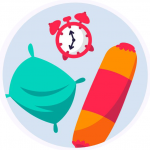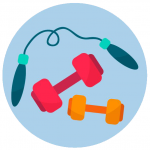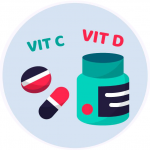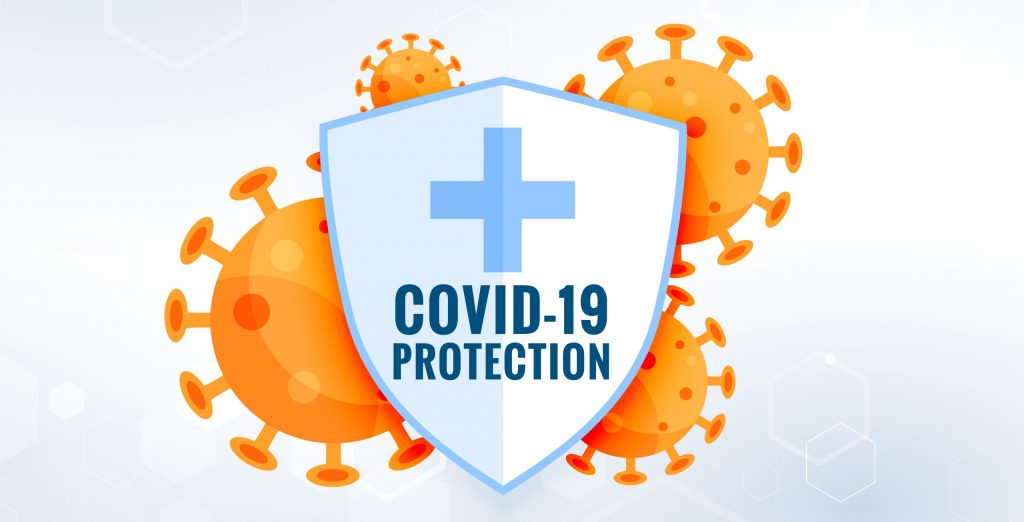It is hard to believe that we are already halfway through August with the summer and associated heat in full swing. It has been a difficult past few months dealing with the pandemic while trying to maintain as normal of a daily routine with work, family, and school as is possible.
I have spoken to many of you during this time and want to thank you for your concerns and best wishes for me, my family, and the office staff. Thankfully, everyone is well. The office has remained open with procedures in place to continue caring for patients in as safe and efficient a manner as possible.
The recent surge in cases in Travis County has fortunately leveled off and begun to drop and hospitalizations are also decreasing. There remain ample ICU beds available at this time. The start of school will bring new challenges so remaining diligent on common sense measures in place to mitigate spread will be important.
Testing for COVID-19 remains a challenge. Turnaround time for the nasopharyngeal test is 3-7 days depending upon lab test volume. Rapid tests are available by appointment at Tarrytown Pharmacy, Signature Care and Texas Medclinics. These tests are usually reliable if positive, but have a higher false negative rate so the usefulness of a negative test without a back up nasopharyngeal PCR swab is questionable. Technology is advancing and rapid testing accuracy should improve. I am working to obtain the most reliable rapid testing possible for use in the office this fall, but availability of the testing machines has been a challenge.
Many have asked about treatment and prevention. There has been a resurgence in talk regarding Hydroxychloroquine. Current studies have not been encouraging and the drug does have potential cardiac side effects. The FDA currently does not recommend its use in clinical settings at this time. Remdesivir, Convalescent Plasma, and the steroid Dexamethasone have shown benefit in more critical hospitalized patients. There is some evidence that an inhaled corticosteroid, Budesonide, can be used in non-hospitalized patients to help with the harmful inflammatory cytokine release associated with COVID-19. Studies are currently underway to look at this more closely.
For prevention, the best strategies continue to be hand washing, social distancing and face covering. Avoid, when possible, activities or locations that place you at higher risk. View the chart from the Texas Medical Association on how risky certain activities are believed to be.
Another important strategy is to favorably influence the immune system through lifestyle modification. Addressing the following issues as we go about our daily routine can be beneficial in maintaining health and disease prevention.
 DIET
DIET
| Research indicates that plant-based foods are high in phytonutrients, vitamins and antioxidants and can help regulate an overactive inflammatory immune response, which is what is seen in COVID infections. So, eating plenty of fruits, vegetables, along with whole grains, legumes, seeds and nuts, is important. Aim for a plate of colorful natural foods at all meals. On the flip side, eliminating foods that are known to negatively affect a health immune response, such as those containing added sugars, salts or saturated fats would aid in decreasing inflammation. Studies have shown that a single high fat processed meal leads to increases in inflammatory cytokines (remember cytokine storm is what is believed to cause the most problems in hospitalized COVID patients) by 100% within 6 hours of eating. Phytonutrients in food come in all different colors—green, yellow-orange, red, blue-purple, and white. Take a color tour here! |
 STRESS
STRESS
| Both chronic and acute stress can result in a poorly regulated and suppressed immune function. Practicing stress modifying techniques such as mediation, mindfulness, practicing gratitude and deep breathing have been shown to reduce the severity of infections in general. |
 SLEEP
SLEEP
| We all understand the importance of sleep in relation to how we feel physically and function mentally. But sleep also restores our bodies at a cellular and physiological level allowing for a more robust defense against infection. Try to practice good sleep hygiene by maintaining consistent sleep hours (you can set reminders to go to bed on time), turning off screens at least 30 minutes before bedtime, and keeping the room cool, quiet and dark. |
 EXERCISE
EXERCISE
| Exercise is known to be important to the health and functioning of most all of our physiological systems including, you guessed it, the immune system. Exercise increases the levels of infection-fighting white blood cells and decreases stress hormones. So, stay active any way that you are able to during these challenging times. |
 SUPPLEMENTS
SUPPLEMENTS
There are many reports online that promote taking supplements as a way to treat or help prevent COVID-19. BE AWARE there is no proven evidence that any supplement will cure or prevent COVID -19. That being said, based on known biochemical actions in the body and studies on how vitamins and some supplements affect viral replication and inflammation, it is reasonable to consider adding some of the following to your daily regimen.
|
In the future, we hope to have a treatment available that will be effective and easy to administer. In the meantime, continue to do what you can to care for yourself and those around you.
In Good Health,
Kerry D. Rhodes MD
Sources:
- Yanuck SF. Immune-Physiological Approach to COVID-19. Integrative Medicine. Vol. 19,No.S1,epub.
- Armiage L, Brettell R. Inhaled corticosteroids: A Rapid Review of the Evidence for Treatment or Prevention of COVID-19. Centre of Evidence-Based Medicine, University of Oxford. June 22, 2020.
- The Functional Medicine Approach to COVID-19: Virus Specific Nutraceutical and Botanical Agents. The Institute for Functional Medicine. April 7,2020.
- Emerson DR, Kurti SP, Harms CA, et al. Magnitude and Timing of the Postprandial Inflammatory Response to a High-Fat Meal in Healthy Adults: A Systemic Review. Adv Nutr. 2017;8(2): 213-255.

